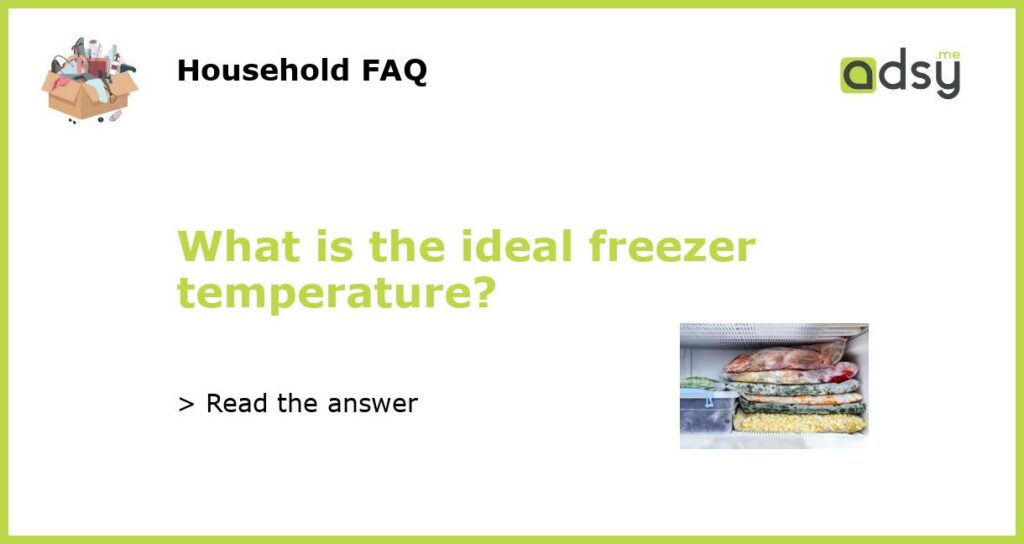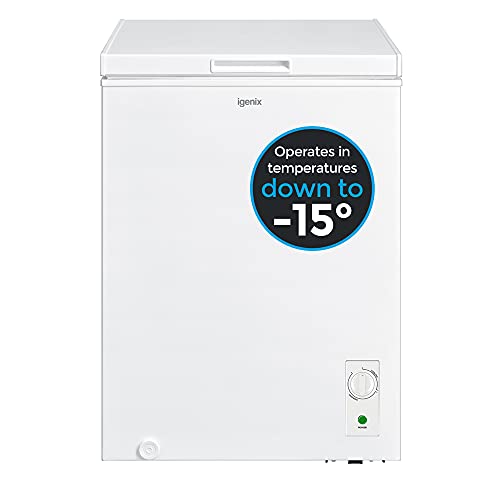What is the ideal freezer temperature?
When it comes to keeping your food fresh and safe, maintaining the ideal freezer temperature is crucial. But what exactly is the ideal temperature for your freezer? In this article, we will explore the recommended freezer temperature range, the impact of temperature on food quality and safety, and tips for maintaining the right temperature in your freezer.
The recommended freezer temperature range
The ideal freezer temperature range is between -18°C (0°F) and -23°C (-10°F). This temperature range ensures that your food stays frozen and prevents spoilage. Maintaining this temperature is especially important for long-term food storage, as it helps to preserve the quality of your frozen food for a longer period.
It’s important to note that the temperature in your freezer can fluctuate slightly due to factors such as the frequency of door openings, placing warm items in the freezer, or power outages. However, it’s essential to strive for keeping the temperature within the recommended range as consistently as possible.
The impact of temperature on food quality and safety
Achieving and maintaining the ideal freezer temperature is crucial for both food quality and safety. Freezing food helps to extend its shelf life and maintain its nutritional value, but if the temperature is too high or too low, it can have adverse effects on the food.
If the freezer temperature is too high, above -18°C (0°F), the food may begin to thaw, which can result in a loss of quality, texture, and flavor. It also increases the risk of bacterial growth, which can lead to foodborne illnesses. On the other hand, if the temperature is too low, below -23°C (-10°F), the food can become excessively dry and develop freezer burn.
In addition to the quality and texture of the food, temperature fluctuations can also impact the overall safety of your stored food. When the temperature rises above freezing, bacteria can start to multiply, increasing the risk of foodborne illnesses. Keeping the temperature within the recommended range helps to prevent this growth and preserve the safety of your food.
Tips for maintaining the right temperature in your freezer
Now that we understand the importance of maintaining the ideal freezer temperature, let’s explore some tips to help you achieve and maintain it:
- Use a reliable thermometer: Invest in a freezer thermometer to accurately measure the temperature in your freezer. This will help you monitor and adjust the temperature as needed.
- Avoid overfilling the freezer: Proper air circulation is essential for maintaining a consistent temperature. Avoid overcrowding your freezer so that cold air can circulate freely.
- Keep the freezer door closed: Limit the number of times you open the freezer door to prevent warm air from entering. This will help maintain a stable temperature inside.
- Check the door seal: A damaged or worn-out door seal can cause cold air to escape, leading to temperature fluctuations. Regularly inspect the seal and replace it if necessary.
- Defrost when necessary: Regularly defrost your freezer to remove ice buildup, as this can impact its efficiency and affect the temperature stability.
By following these tips, you can ensure that your freezer maintains the ideal temperature range, keeping your food fresh and safe for consumption.






